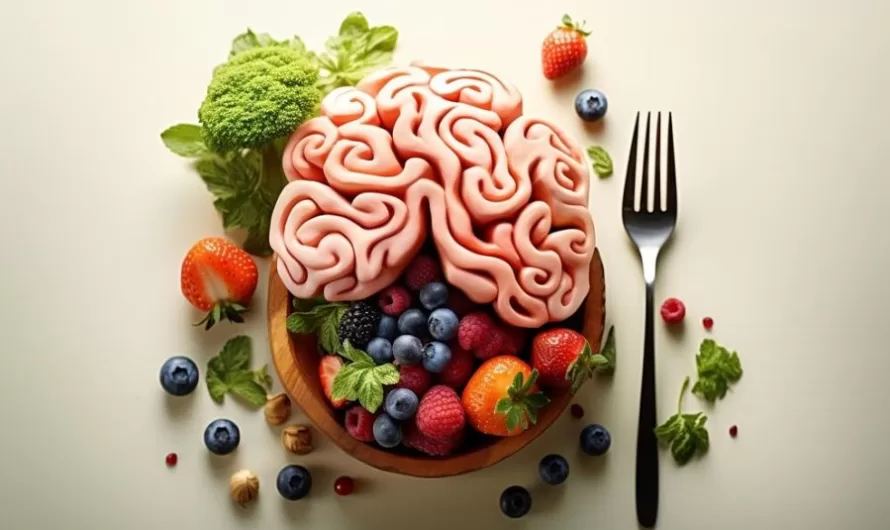In the hustle and bustle of modern life, the importance of nutrition extends beyond physical well-being; it profoundly influences our mental health. The intricate connection between what we eat and how we feel has sparked a growing interest in the field of nutritional psychiatry. Let’s embark on a journey to explore the profound impact of nutrition on mental health, uncovering actionable insights for a balanced mind.
Nutrient-Rich Diets and Cognitive Bliss
Eating for brain health isn’t a one-size-fits-all concept. A diet rich in omega-3 fatty acids, antioxidants, and vitamins B and D has been associated with improved cognitive function. Explore incorporating fatty fish, colorful fruits, and leafy greens into your meals to promote optimal brain health.
The Gut-Brain Axis: Nurturing the Microbiome for Emotional Well-Being
Dive into the world of the gut-brain axis, an intricate communication network between the gut and the brain. Fermented foods like yogurt and kimchi, along with high-fiber options, can positively influence the gut microbiome, potentially alleviating symptoms of stress and anxiety.

Balancing Blood Sugar for Mood Stability
Unstable blood sugar levels can contribute to mood swings and irritability. Opt for complex carbohydrates, lean proteins, and healthy fats to maintain stable blood sugar levels. Snacking on nuts or incorporating whole grains into your diet can be key in achieving this balance.
Serotonin Production: The Role of Tryptophan-Rich Foods
Often referred to as the “feel-good” neurotransmitter, serotonin is an essential mood regulator. Tryptophan-rich foods including turkey, eggs, and almonds can help the body produce serotonin. Including these in your diet may contribute to a more positive mental state.
Omega-3 Fatty Acids: Nature’s Mood Stabilizers
Explore the benefits of omega-3 fatty acids, known for their anti-inflammatory properties. Walnuts, chia seeds, and fatty seafood like salmon are great sources. These beneficial fats could help lessen the signs and symptoms of anxiety and sadness.
Antioxidants: Defenders Against Oxidative Stress
Oxidative stress can damage brain cells and contribute to mental health disorders. Antioxidant-rich foods, such as berries, dark chocolate, and colorful vegetables, act as defenders, neutralizing harmful free radicals and supporting overall brain health.

Hydration and Mental Clarity
Dehydration can impact cognitive function, affecting concentration and mood. Ensure you’re adequately hydrated throughout the day, incorporating herbal teas and water-rich fruits to support optimal brain function.
Mindful Eating: A Holistic Approach to Mental Well-Being
Beyond specific nutrients, the practice of mindful eating deserves attention. Cultivate a mindful approach to meals, savoring each bite and paying attention to hunger and fullness cues. This practice can enhance your overall relationship with food and, subsequently, your mental well-being.
Conclusion: A Recipe for Mind-Body Harmony
As we navigate the intricate relationship between nutrition and mental health, it becomes evident that our dietary choices play a pivotal role in shaping our emotional well-being. Embrace a holistic approach to nutrition, considering the diverse array of foods that can nourish both your body and mind.
In crafting your dietary journey towards mental wellness, remember that small, sustainable changes often yield the most significant results. Whether it’s adding a handful of nuts to your snack or incorporating a variety of colorful vegetables into your meals, these choices can collectively contribute to a harmonious balance between nutrition and mental health. Your mind is a precious garden – nurture it with the nutrients it deserves. Ready to embark on a journey towards enhanced mental health through nutrition? Contact Texas Specialty Clinic at (469) 496-2454 to schedule a consultation tailored to your unique needs.
